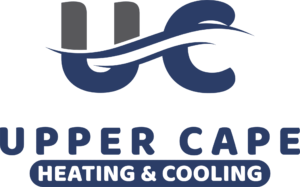Heat pumps are devices used for heating and cooling spaces by transferring heat from one place to another. They are highly efficient and can provide significant energy savings compared to traditional heating and cooling systems. Heat pumps come in various configurations, including ducted mini-splits, ductless mini-splits, and central air heat pumps.
Heat Pumps Cape Cod
What are heat pumps?
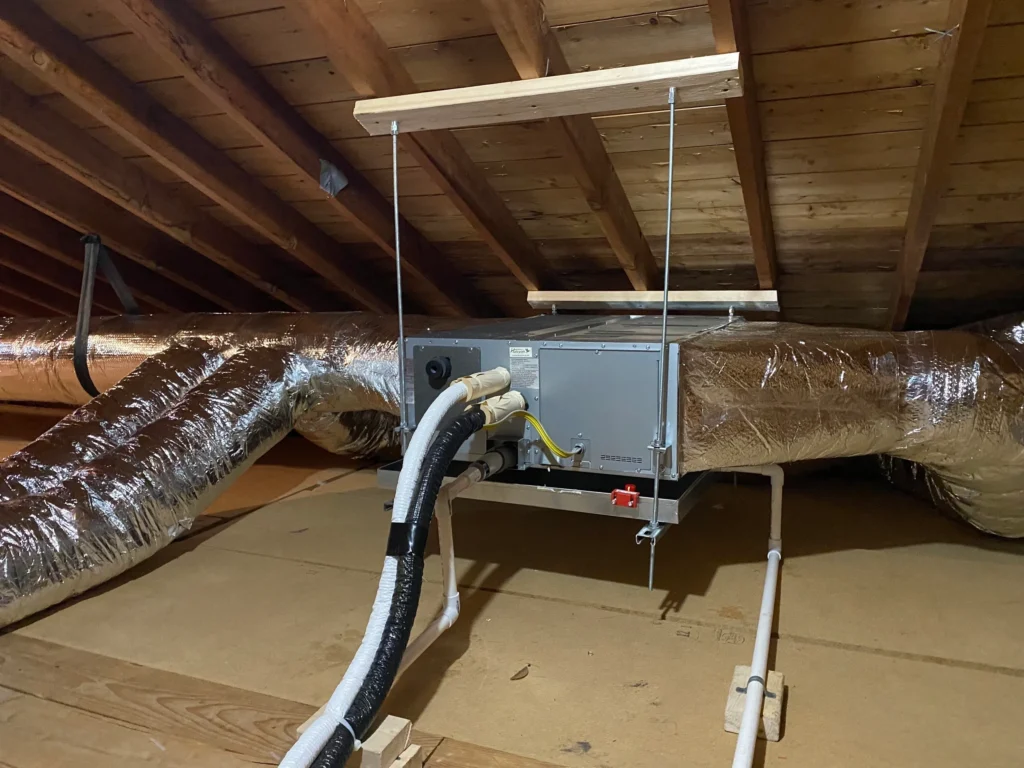
Ducted Mini-Splits
Ducted mini-splits combine the efficiency of mini-split systems with the convenience of ductwork. These systems have an outdoor unit connected to an indoor unit via refrigerant lines, and the indoor unit is connected to a series of ducts that distribute air throughout the home. This allows for consistent temperature control in multiple rooms while maintaining high energy efficiency. Ducted mini splits are ideal for homes that already have ductwork in place or for those looking to add a more traditional heating and cooling system without the inefficiency of older models.
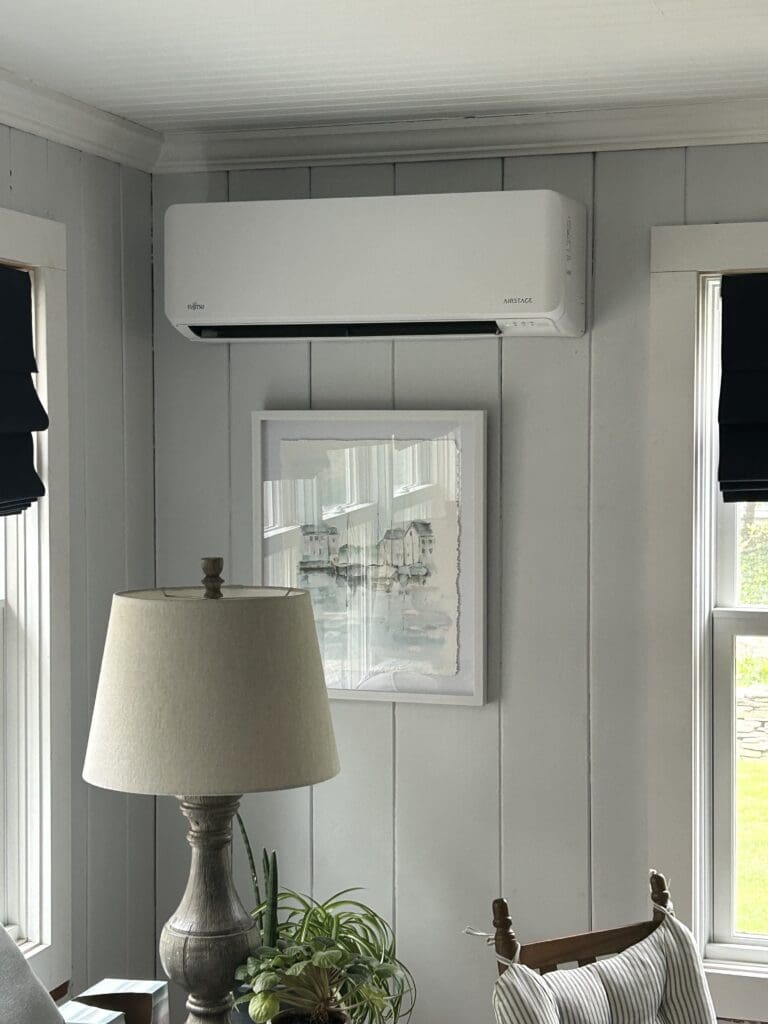
Ductless Mini-Splits
Ductless mini-splits, also known as split systems or multi-splits, do not require ductwork. They consist of an outdoor unit and one or more indoor units that are mounted on the walls or ceilings of the rooms being heated or cooled. Each indoor unit can be controlled independently, allowing for customized temperature settings in different rooms or zones. This makes ductless mini-splits highly versatile and efficient, especially for homes without existing ductwork or for additions and renovations where adding ducts would be impractical.
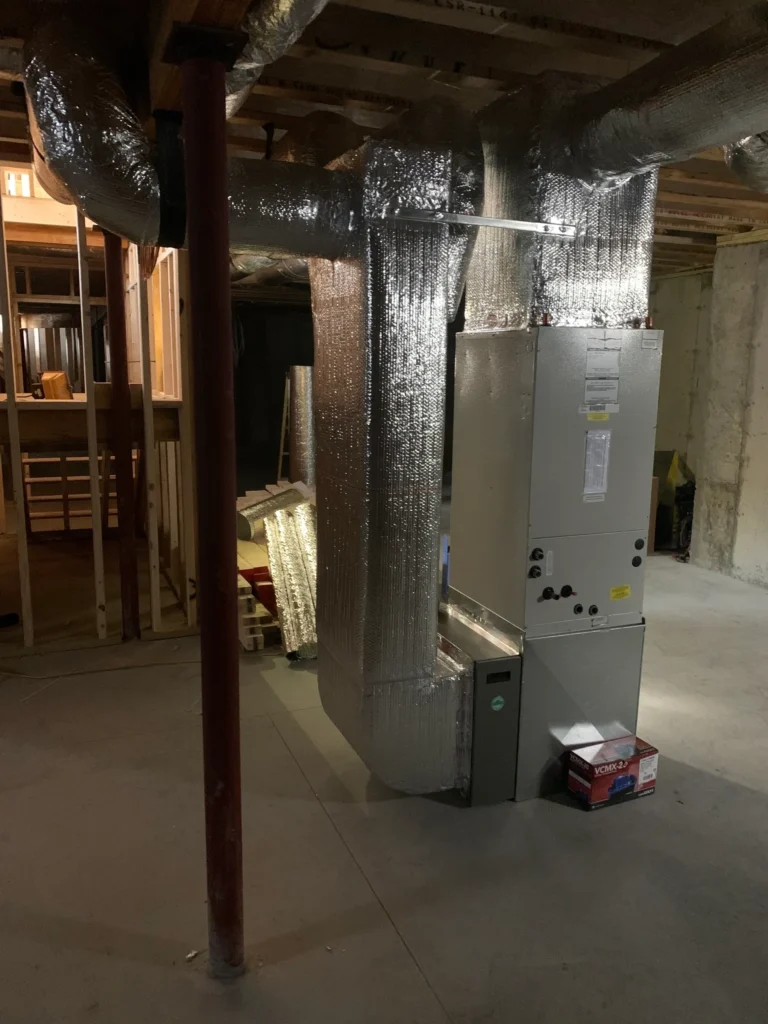
Central Air Heat Pump
A central air heat pump is a comprehensive heating and cooling solution that uses a single outdoor unit connected to an indoor air handler via ductwork to distribute conditioned air throughout the entire home. These systems are similar to traditional central air conditioners but can also provide heating by reversing the refrigeration cycle. Central air heat pumps are ideal for homes that need a whole-house solution for both heating and cooling and have existing ductwork in place. They are known for their ability to maintain a consistent temperature throughout the home and can be more efficient than separate heating and cooling systems.
Why Heat Pumps are a great choice for Cape Cod homes?
Heat pumps are a good solution for many different climate zones and Cape Cod is one of them. Besides their efficiency, there are also other reasons to choose a heat pump for your home.
6 Advantages of Heat pumps for Cape Cod.
- Massachusetts offers various incentives and rebates for energy-efficient home improvements, including the installation of heat pumps. Cape Cod homeowners can take advantage of these financial incentives to offset the initial installation costs, making heat pumps a more affordable investment.
- Cape Cod has a diverse range of home styles, from historic cottages to modern builds. Heat pumps, particularly ductless mini-split systems, offer flexible installation options that can suit different architectural styles and layouts.
- Heat pumps operate more quietly compared to traditional HVAC systems. This is a significant advantage in the peaceful residential areas of Cape Cod, where noise pollution can be a concern.
- Cape Cod’s coastal location can lead to high humidity levels during the summer. Heat pumps not only cool the air but also help in dehumidifying it, improving indoor comfort and reducing the likelihood of mold and mildew growth.
- Cape Cod experiences a moderate climate, with relatively mild winters and summers. Heat pumps are highly efficient in such conditions, as they perform best in environments that do not have extreme temperature variations.
- Heat pumps use electricity to transfer heat rather than burning fossil fuels, resulting in lower greenhouse gas emissions. This aligns well with the eco-conscious mindset of many Cape Cod homeowners and contributes to a cleaner, greener environment.
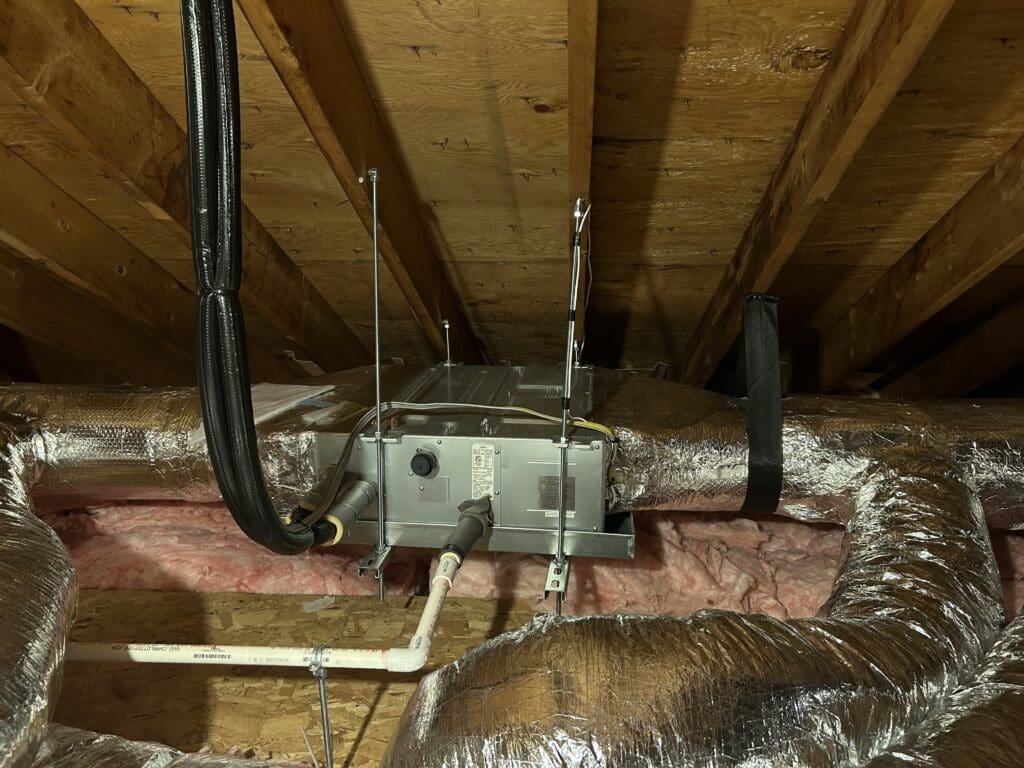
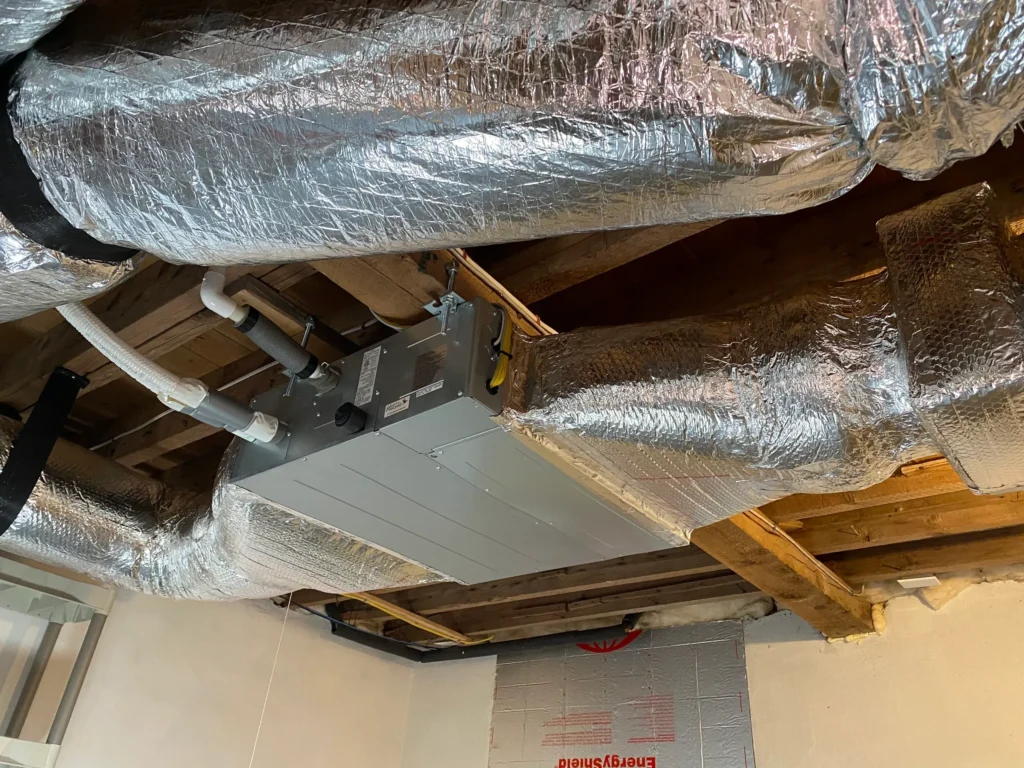
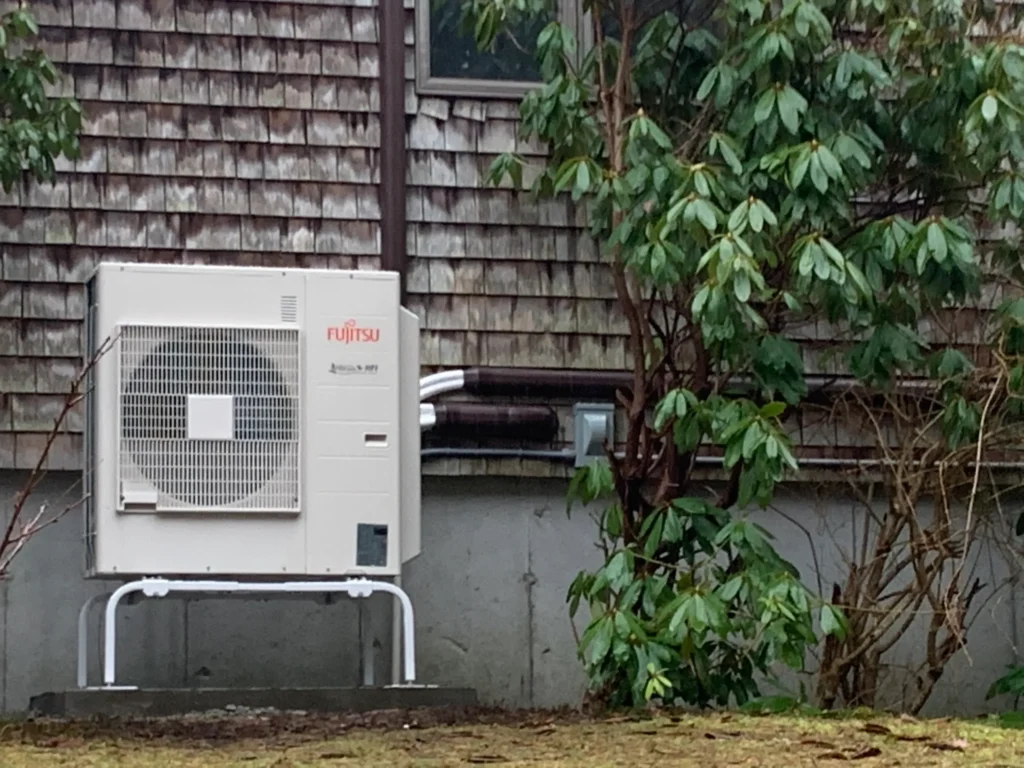
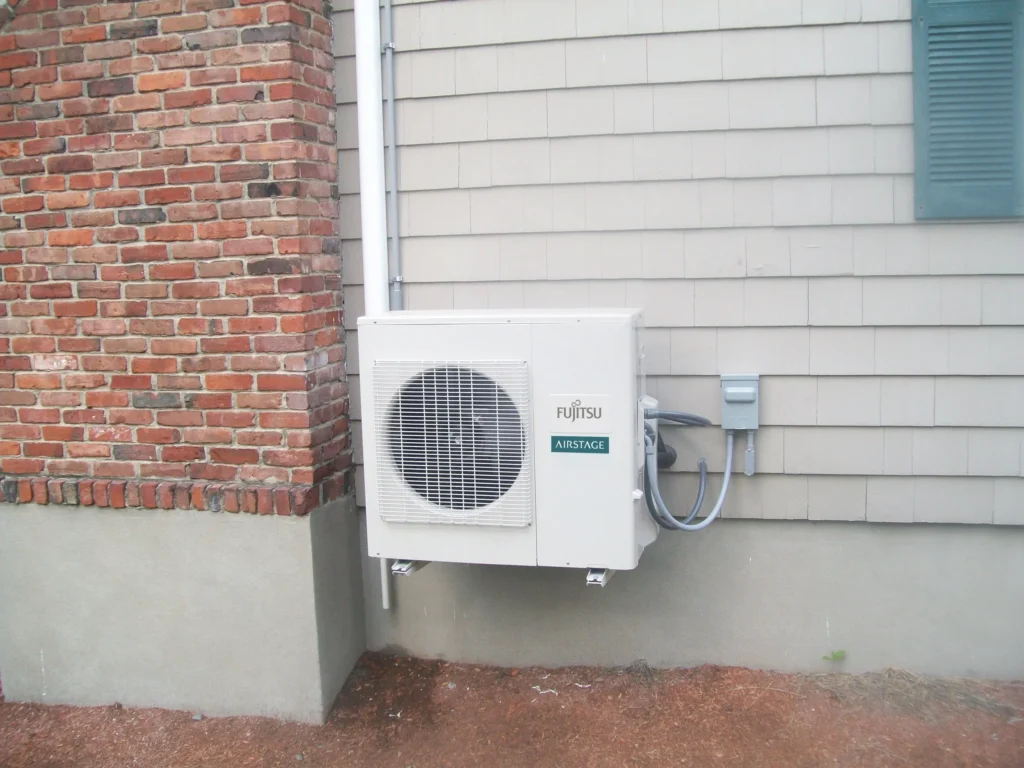
Expert HVAC Services on the Upper Cape
Elevate Your Comfort With Reliable Solutions From a MassSave® Approved Contractor.
Heat Pumps FAQs
Heat pumps use electricity to move heat. In heating mode, they extract heat from the outside air (even in cold weather) and transfer it inside. In cooling mode, the process is reversed, and heat is extracted from inside your home and expelled outside.
With proper maintenance, a heat pump can last between 15 to 20 years. Regular servicing and upkeep can help extend its lifespan and maintain efficiency.
Mass Save offers several incentives for heat pumps, including:
- Rebates for Air-Source Heat Pumps: Mass Save provides rebates up to $16,000* per home on air source heat pumps.
*Rebates may vary based on planned use and income verification.
- Interest-Free Financing: The Mass Save HEAT Loan program offers 0% interest financing for qualifying energy-efficient upgrades, including heat pumps.
There are also many other programs available.
